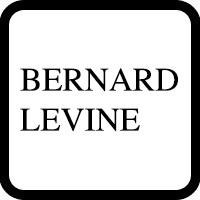Penfield Bankruptcy & Debt Lawyer, New York
Sponsored Law Firm
-
 x
x

Click For More Info:
-
The Michelson Law Office
203 North Lasalle Street Suite 2100 Chicago, IL 60601» view mapBankruptcy, Chapter 7, Chapter 13 Chicago Bankruptcy Lawyer
When your finances are at stake, choose the best. Don't sink deeper in debt. Contact The Michelson Law Office
800-824-6431
Bernard D. Levine
✓ VERIFIEDBankruptcy & Debt, Estate, Real Estate, DUI-DWI, Divorce & Family Law
Bernard D. Levine is a practicing lawyer in the state of New York.
Peter John Glennon
Litigation, Aviation, Commercial Bankruptcy
Status: In Good Standing Licensed: 19 Years

 Abraham Michelson Chicago, IL
Abraham Michelson Chicago, IL AboutAbraham Michelson
AboutAbraham Michelson Practice AreasServices
Practice AreasServices

